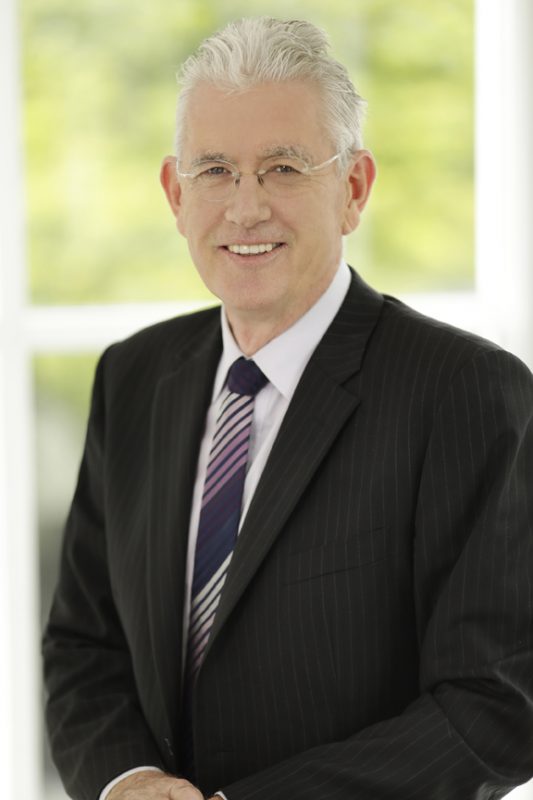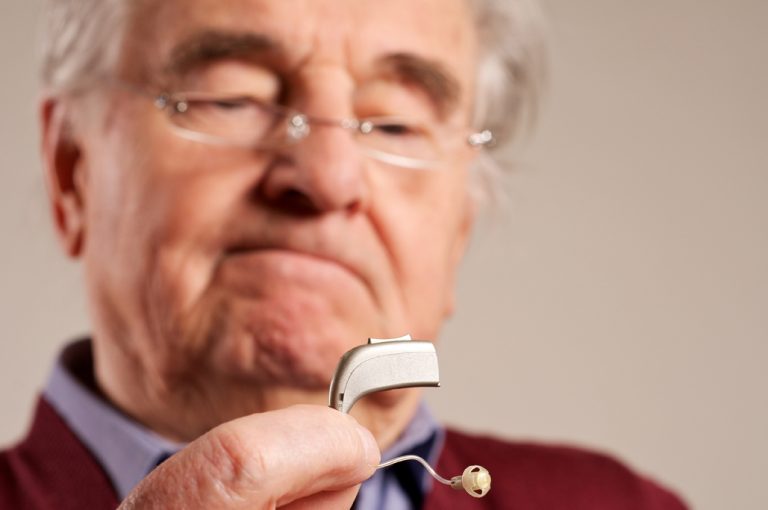John McNamee Reports
One senior Australian was forced to re-mortgage his house to buy $11,000 in hearing aids that were unsatisfactory and un-refundable.
Another described how they purchased products that cost as much as $15,000 and lasted only five to 10 years before needing replacement.
These are just two examples of “horror’ stories outlined by National Seniors Chief Advocate, Ian Henschke during submissions to the hearing health report, titled Still Waiting To Be Heard which was released recently.
It calls on the Federal Government to adopt the key recommendations of the report “without delay”.
Mr Henschke said after two investigations of the industry in a decade, the government needed to clean up problems the ACCC had labelled scams.
“Many vulnerable people are being exploited by the unconscionable actions of retailers and sales people driven by commissions, rather than public health considerations,” he said in a statement released shortly after the report was tabled.
He said one in six Australians had hearing loss, and the figure would rise to one in four by 2050.

One of the key recommendations was to crack down on use of commissions in the hearing aid industry.
As well as the examples of “horror stories” quoted above, Mr Henschke said National Seniors had been told of people questioning a price and then having it suddenly drop by thousands.
“At the same time, we also heard of people buying products that do the job at a fraction of the price.
“We are very disappointed with the lack of competition and price transparency in the market.”
National Seniors also supported recommendations that hearing become a national health priority, with a national strategy; greater education and an awareness campaign encouraging people experiencing hearing loss to seek help; and a review of hearing services provided to residents of aged care facilities.
Mr Henschke said National Seniors agreed with the inquiry report that in many respects, Australia was a leader in supporting those with a hearing loss.
But it also agreed that much more could be done, especially for older people who were often on extremely limited incomes and more vulnerable to scams and rip-offs.
“Our members have told us they often feel pressured into purchasing expensive hearing aids without any understanding of the cost benefit of the product being sold,” he said.
Mr Henschke said National Seniors agreed with the inquiry report that the time for action was well overdue.
“We know there is a lot of frustration among those with hearing loss and in the medical and support community. It’s time the government got on with fixing the situation,” he said
Meanwhile, National Seniors also claims the Federal Government’s consumer-directed home care program has a risk of failing, despite almost universal support for it among older people.
National Seniors Research Director Professor John McCallum said recently 98 per cent of its members believed choice of home care services was important, regardless of their age, with those living on the Age Pension most likely to say it was ‘extremely important’.
And despite reports of ‘endless horror stories’ about the My Aged Care website, more than half said they were satisfied with it, although this might have been with assistance from family and friends.
Prof McCallum said a recent National Seniors survey of 4,267 members had revealed some problems with the new system, including lack of choice, high administration fees and insufficient care packages.
It had also revealed 20 per cent of respondents had no confidence of being able to choose a provider to suit their needs and another 35 per cent were unsure.
Prof McCallum said confidence was particularly low among residents of regional communities, where the number of providers was low or non-existent.
Despite this, support for the concept of consumer-directed home care was high, with consumers wanting choice and flexibility in aged care.
Until February this year, Australian home care services were in packages awarded to service providers.
Now older consumers are assessed for funding, which they can use to ‘purchase’ services from providers of their choice.
The system is designed to allow older people to age in their own homes and communities, rather than moving to nursing homes.
“This is like shifting from a ‘command’ to a ‘market’ economy,” Prof McCallum said. “But what we found was that people don’t know what to buy or how to buy it, and the system can’t respond without change and further development.
“The experience here in Australia is what’s happened elsewhere in the world during the start-up phase of consumer-directed systems. People, particularly those who are most vulnerable, just aren’t used to having choice, and we must ensure that we don’t allow the system to fail at the starting gate.
“With such overwhelming support for choice, we need to reform consumer-directed care to make it work and ensure we don’t throw the baby out with the bathwater.”
Prof McCallum said National Seniors was eager to work with the Federal Government to ensure the success of consumer-directed home care.
Meanwhile, seniors could be forced to downgrade their level of cover or drop their health insurance altogether, if premiums continue to rise unchecked.
As health insurers prepare submissions supporting their case for a hike next April, National Seniors Australia is raising concerns about issues driving seniors away from health cover at a time when they need it most.
In a submission to the Senate Inquiry Value and affordability of private health insurance and out-of- pocket medical costs, National Seniors said the next price rise – around six per cent – would come on top of soaring power prices and changes from last January to the Age Pension means test.
“Those changes adversely impacted around 30,000 part-pensioners, many of whom are now struggling to maintain health insurance,” Mr Ian Henschke said.
“Our members have told us they want to keep their health cover so they can avoid lengthy waiting lists in the public hospital system and have the doctor of their choice.
“But the higher insurance premiums mean they are downgrading their level of cover with products that have higher excesses, co-payments and more exclusions, just to avoid dropping the private health cover altogether.
“National Seniors’ research has also shown us that 93 per cent of people aged over 75 have at least one chronic condition, while 77 per cent of people aged between 50 and 64 have at least one chronic condition.
“Many of them could return from an unavoidable hospital stay or course of treatment and find themselves thousands of dollars out of pocket due to gap payments and product exclusions, which can be difficult and confusing to estimate. They usually come as a nasty surprise when making a claim.”
Mr Henschke said most seniors with health insurance would have been paying their premiums for decades during which health funds would have reaped the benefits of fewer claims.
“National Seniors is calling on the Federal Government to explore all options to improve the affordability of premiums, including the pricing arrangements between health funds and providers,” Mr Henschke said.
-
Information supplied by National Seniors Australia.




